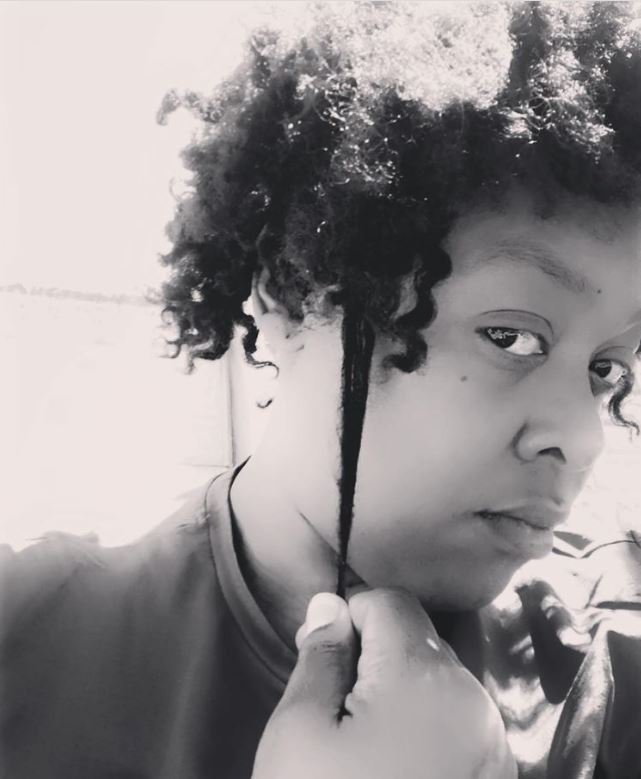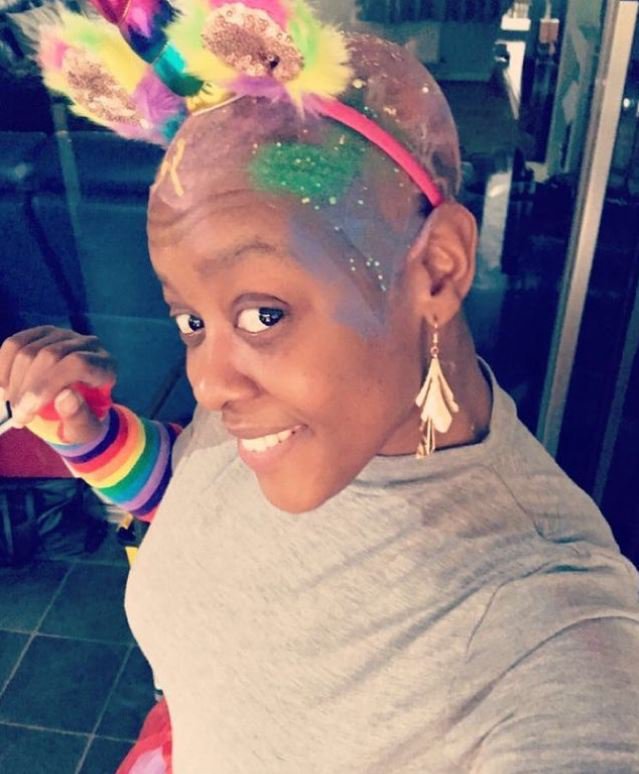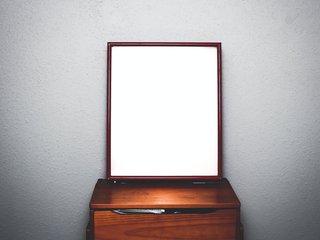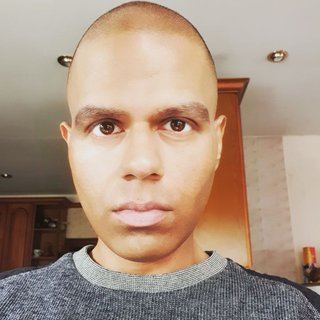How I got creative with my newly bald head
Simone was diagnosed with myeloma in 2018. She challenges typical views around hair loss and shares what she’s learnt through her hair loss experience.

When I started treatment, one of my first questions was would I lose my hair straight away? It was something I was already worried about.
My hair loss didn’t start straight away in the end. I’m Afro-Caribbean, and my hair was really thick and didn’t have much of a curl pattern. On treatment, at first the texture started to change. I got fine curls and it got thinner than before. It was actually more manageable, and I was okay with it changing like this.
Blood Cancer UK has information specifically about caring for Afro-textured hair during cancer treatment.
However, I then had to change treatment. I had a large chemo dose before my stem cell transplant and within two days my hair had started to fall out. It was traumatic - I’d lift my head off the pillow in hospital and see chunks coming out. I hadn’t even initially thought about the other types of hair but then my eyelashes, eyebrows and even my nostril hair all disappeared. I felt like an expressionless egg by the time it had all fallen out!
Telling the children about my hair loss
I have lots of children in my life and they had questions about my hair loss. I told them it was happening because I was on tablets that made my hair fall out, I didn’t expect them to understand the cancer. I wanted to make sure they weren’t scared of the way I looked without my hair. I’d lost weight too and I was worried they wouldn’t know how to talk to me about the changes.
I thought I’d make the situation lighter and make them feel more comfortable by letting them touch my head and massage it. My goddaughter offered to cut her hair so I could have it - she wanted to help in some way.
I had an idea. I said to the children ‘you can paint my head - you can use glitter and do whatever you want and that will help my hair grow back.’
I dressed up in a unicorn outfit with face paint, a tutu, stripy socks - the whole fancy dress - and then they got creative with my bald head! It was helpful for them because it made it okay to talk about my hair not being there. Six months later it started to grow back. The children like to think that they had a part in helping that!

Accepting my hair loss
Before I lost my hair, I felt daunted by what was to come. I was worried my head was going to look massive and that I’d look garish wearing make-up. I thought I might feel scared to leave the house and thought people may judge me. But when it happened, it was easier to accept than I thought it would be and I felt more at ease. People around me were kind and understanding, and I felt I could leave the house both bald and with a headscarf. It sounds weird but, in a way, I loved my bald head!
I still miss the way that I looked before and I look at photos from before my treatment, but I feel like I value appearances less now. I’m less materialistic than I used to be and the way I look isn’t so important to me.
I do struggle sometimes with my body image and hair loss, so I try to remind myself that my body has been through a lot. My mind and body stayed so strong in getting through treatment, so if I’m capable of all that, then I’m capable of believing I look okay today. I try to show myself kindness when I’m struggling, and I’m open with other people about how I’m feeling.
I want people who may also be going through hair loss to know your hair doesn’t define you.
It may seem challenging to cope with right now but however you look, you are still the same person on the inside. Whether that is the person you were prior to your diagnosis, the person you are going through cancer, or the person you’ve become since your hair loss, you get to decide who you are.
Things I found that made hair loss easier
Take actions to make yourself feel more in control. I got my brother to cut my hair before it started to fall out. Having it much shorter than usual made it easier to deal with when the hair loss started. It was still traumatic, but a little less so because smaller chunks came out.
There’s always a way to look good. I worked my outfits around what looked good with my bald head. Instead of floaty dresses, I chose denim dresses and biker jackets. I dressed edgier and I enjoyed the creativity in putting together my new outfits.
Reassurance from loved ones can make all the difference. The people around me were so supportive and helped me embrace my baldness. They would suggest different head scarves for me to use. It showed they really cared about me and were thinking of me. My husband reassures me about my appearance and drags me out of a funk when I’m having a tough day. We have a change of scene, get out of the house and drive somewhere.
Have a space to talk about feelings. We have a family journal in our house where we write our fears, thoughts and feelings down. Even adults find it hard to talk about their feelings sometimes, so this is a way to talk about things without having to say them out loud. It’s helpful being able to read it back and see how we were feeling in each moment.
Love your head. Look after your scalp and treat it as an extension of your face. I used oils to massage my head every night and wore a satin cap to bed. I took care of my head because I knew that at some point there was the potential for my hair to grow back.
Be kind to yourself. Losing your hair can be a traumatic experience. If you don’t like the way you look some days, that’s okay. Another day will come where you look in the mirror and think ‘I look nice today’.

Coping with changes to your body
Learn more about why side effects have a big emotional impact too, and how other people have found ways to cope.

